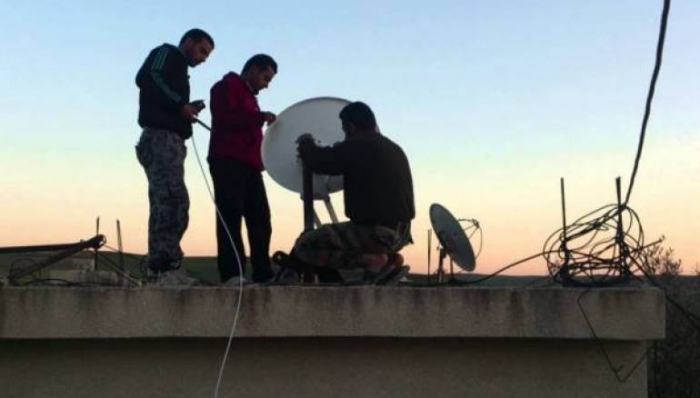Since the beginning of the Syrian revolution in March 2011, the Damascus regime has adopted a policy to punish liberated areas by all economic and social means. The regime prevented essential goods from entering besieged and liberated areas as well as disconnecting all means of communication in order to prevent reporting the truth to the outside world.
The Syrian regime considered reporting and broadcasting events over the internet as serious as breaching national security with a possible punishment of execution. Moreover, the regime deactivated landlines’ switchboards to prevent communication among people in different areas across the country, according to Diaa, an electrical engineer.
“The situation in border towns was different in regards to communication, as they were able to connect to internet and mobile phone networks from neighboring countries, like people in southern Syria who were able to connect to a Jordanian mobile phone network, which enabled them to show the world what was happening,” Diaa explained.
Ali, the owner of a mobile phone store, told Iqtissad that most people in his town use the Jordanian mobile network, because they are the only available networks. He explained that locals obtain mobile SIM cards from visitors returning from Jordan.
When the Jordanian networks became weaker and slower, people began to consider joining the “space internet” project that had spread throughout many liberated areas.
Mohsen, an investor in space internet, mentioned that the project has very good profits despite competition, adding that $7,500 is needed to buy towers and equipment for broadcasting and receiving signals.
Mohsen mentioned that signals of space internet are designed to cover a village or a town depending on the number of towers, explaining that the smallest town or village might need between 10 and 15 towers.
Moaz, an owner of a space internet project added that establishing more than one project is better for people as it helps in reducing prices and improves service. He mentioned that prices for a gigabyte of internet data cost 1,250 Syrian pounds ($5.5), while 3 GB costs 2,500 pounds and 4 GB costs 3,500 pounds.
Moaz said that a SIM card costs 200 Syrian pounds less than a regime SIM, adding that the service is also faster. He mentioned that equipment is bought from specialized traders who transport it from Jordan and Turkey to Syria.
This article was edited by The Syrian Observer. Responsibility for the information and views set out in this article lies entirely with the author.


